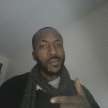WHY POETRY
Make Way For the Metaphor!

Ever since I was a child, the idea of a vacation never made sense to me. I hardly travel anywhere outside of this Big Apple. There’s enough nutrition to gather from this fruit.
That metaphor is New York City, my provenance. I learned a lot about New York through reading poetry, specifically Walt Whitman. He’s the first poet I seriously read. But I didn’t understand that until I read WHY POETRY by Matthew Zapruder.
WHY POETRY was published in 2017, five years prior to us crossing paths. I found it in what looked to be a diverse bookstore. It sold various forms of entertainment, from movies to anime/manga and video games to books. I was there to sell books I no longer needed. The staff, however, was busy with many customers on the same business as myself, so I decided to roam the scenery.
As always, I first look for the poetry section. There’s was small, a common and unfortunate case with many bookstores. I immediately saw WHY POETRY, but didn’t buy it that day. Part of me wasn’t intrigued, although something told me I should buy it. The only thing I recall saying to myself was “Why is there no question mark after POETRY?” I love writing, and editing, after all, is a type of writing.
Who knows if that was the incentive that made me return a few days later and buy the book? I also assumed the book would be there when I returned. Fortunately it was. Plus I had more books I wanted to sell. But for whatever reason, I didn’t start reading the book immediately. I was reading The Will To Change by bell hooks. I have a peculiar loyalty to those that recommend books to me, especially non-fiction and poetry. I didn’t finish the book though. Someday.
Once I unwittingly put The Will To Change down, I started reading WHY POETRY. The mere feeling of holding this book in my hand, finally ready to hear another poet’s experience with poetry, I had a slow rush of blood. A page before the table of contents, three aphorisms were printed in the middle of the page. The first one read, in this order and fashion…
Stop this day and night with me and you shall possess the origin of all poems . . . —WALT WHITMAN
Reading “Stop this day and night with me and you shall possess the origin of all poems…” a line from Song of Myself, Whitman’s longest and maybe most vibrant poem, told me WHY POETRY would be life-changing. The stanza of which Whitman’s quote begins ends with “there are millions of suns left.” I was reminded of the joy Whitman’s words conferred me over a decade ago. I cried sometimes when reading him.
Once I read through the Table of Contents my inkling about WHY POETRY, as something I needed at a critical moment in my life, was confirmed. Nearly every title of each chapter intimated with how I feel about poetry: ‘Make it Strange’, ‘Dream Meaning’, ‘Nothing Is The Force That Renovates The World’, ‘Some Thoughts On Form And Why I Rhyme’—to name a few.
Speaking of the last chapter, I was terrified yet relieved to hear Zapruder talk about the importance of form. It explained so well my inclination and attachment to classical poetry, a love for tradition. Even though Whitman is the first poet I seriously read, I didn’t understand him at first read. His verse was too free for me. I needed order, a feeling of exactness about poetic expression. This call for simplicity is elaborated in the 3rd chapter ‘Three Literal Readings’. There he immediately talks about Song of Myself, and how if what Whitman says is taken literally, then the reader can experience something ordinary speech can’t conjure.
While there is a great magnitude of impact this book has had upon me, I'm already reading it for the second time. We never understand anything enough unless we travel the road more than once. That's how I feel about music: I've been on the stage since 12 years old. Add a score and a year to that...that's where I stand today.
Poetry, although I think I was called to it since childhood, erupted in my early 20s. The notorious philosopher and poet Friedrich Nietzsche once said in The Gay Science “We are, all of us, growing volcanoes that approach the hour of their eruption, but how near or distant that is, nobody knows—not even God.”
This book wasn't written exclusively for poets. I imagine mere readers of poetry able to take away a wealth of wisdom from this well-written book. After all, every and any work of art is created with the intent to share.
My personal takeaways are endless. But the major one has to do with trust. I learned from WHY POETRY that I should trust myself more, how I first come upon words, and what my gut tells me when writing poetry. Specifically, this has to deal with taking words literally for what they say.
But trust isn't easy for anyone. Everyone has a different upbringing, ages differently, and comes to perceive reality the way they accepted. And that's where the experience of reading poetry comes into play, as visceral, exclusive, and of a meaning different from someone else reading the same poem.
...I imagine what life would be (metaphor) and be like (simile) if we were more honest with each other and ourselves, more trusting, sincere.
This has inspired me to take on my first poetry project.
I felt a sudden alacrity about writing after reading WHY POETRY. It makes sense now why there's no question mark in the title. Poetry is timeless. All we need is to be alive and trust what words mean. The poem, or "machine", as referred to in the book, will do the rest.
It's up to the poet to trust this gradation of a feeling and the reader to trust and accept what the poem entails.
About the Creator
Christian Lee
My nom de plume is Lee Arachnid; think: spider-poet. Here you will find non-fiction and poetry. I interweave elements of nature and my personal experience into uniquely crafted stories. I love idleness, Felidae, literature, and soundscapes.
Enjoyed the story? Support the Creator.
Subscribe for free to receive all their stories in your feed. You could also pledge your support or give them a one-off tip, letting them know you appreciate their work.
Reader insights
Outstanding
Excellent work. Looking forward to reading more!
Top insights
Compelling and original writing
Creative use of language & vocab
Easy to read and follow
Well-structured & engaging content
Excellent storytelling
Original narrative & well developed characters
Eye opening
Niche topic & fresh perspectives
On-point and relevant
Writing reflected the title & theme






Comments (3)
This makes me want to read Why Poetry, and give Walt Whitman a better visit than I did in school. Your experience with books and take aways from reading are very relatable, and are great reminders.
Ahhh man ... you sold me on this book; I have to get a copy of it. I can see how the WW SoM quote opening got you; if I had nothing but memorized copies of Song of Myself to sell out loud on street corners, I'd feel like I had a gold mine in my head. I must've been meant to read this piece of yours after just writing about my first (and almost last) attempt at writing a poem. Thank you.
Okay, now I need to find myself a copy of this book. I’ve seen it once before and never picked it up, but it sounds very compelling. I also do like a bit of Walt Whitman. I read a lot of his works in college during my studies.